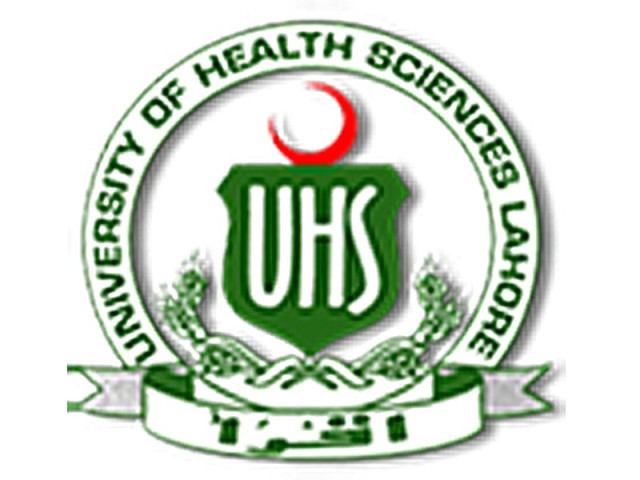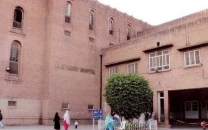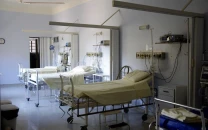Putting it to debate: ‘Quality education first goal for universities’
Academicians debate pros and cons of current university ranking system

UHS Quality Enhancement Cell Director Arif Rasheed Khawaja later informed the participants about quality assurance processes being practiced by the university. PHOTO: UHS website
They were participating in a debate organised by the Quality Enhancement Cell of the University of Health Sciences (UHS).
University of Agriculture Faisalabad Vice Chancellor Iqrar Ahmad Khan said that the obsession with ‘better data’ was not promoting academics in universities.
“The test of a university is how it continuously anticipates and leads change through innovations that create new values as well as offering social, environmental and financial returns for the university, the region and the nation. However, indicators to gauge such factors have yet to be devised and perfected. Not all that counts can be counted,” he said.
Allama Iqbal Medical College Ophthalmology Department Head Nadeem Hafeez Butt supported Iqrar’s argument. “A heavy reliance on ‘good data’ can jeopardise academic quality of an institution,” he said.
He said that it had been observed that in their rush to enhance international reputation, some universities recruited academic staff and admitted students without the required qualifications and abilities. “Such an approach is not only short-sighted and counterproductive for institutional capacity-building, but may jeopardise the nurturing of a healthy academic culture,” he said.
University of Education (UoE) Vice Chancellor Rauf-i-Azam, however, disagreed.
“Quantitative data reflects strengths in teaching, impact of research and international reputation. These days world university rankings are derived mathematically to give the position of an institution relative to others with regards to various aspects of education quality. Despite all its criticisms, this data is still viewed as the best international benchmark for comparing a university’s academic strengths with other institutions,” he said.
Punjab Curriculum and Textbook Board Chairman Lieutenant Gen (r) Muhammad Akram Khan said that rankings had become a significant part of the higher education landscape, both globally and locally. “In this landscape, rankings have risen in importance and proliferated in unimaginable ways. University education has become commercialised and with it, so has the sophistication of agencies and organisations that rank colleges and universities,” he said.
“Undoubtedly, rankings now play a major role in shaping the opinions of current and potential students, parents, employers, and the government about the quality of tertiary education institutions. So the rankings should not be dismissed as irrelevant. These should be seen as a wake-up call, an opportunity to bring in improvements,” he said.
Punjab Higher Education Commission (PHEC) Chairman Muhammad Nizamuddin said that Pakistan’s higher education system must cater first to the current educational needs of the country. “We cannot make the mistake of comparing ourselves with funding-intensive institutions across the world. However, we can select a handful of institutions and focus on integrating undergraduate and postgraduate teaching, research, and citations together,” he said.
UHS Medical Education Department Associate Professor Amina Ahmad said that data regarding citations, faculty-student ratio, enrolments etc, reflected the quality of teaching and learning. “It has a value as a reference and as a basis for comparison,” she said.
“Such data may not always serve as the best indicators of quality and relevance of higher education institutions, yet it gives public specific information to help them select an institution,” she said.
UHS Vice Chancellor Major Gen (r) Muhammad Aslam briefed the participants about the QS World Ranking of Universities.
UHS Quality Enhancement Cell Director Arif Rasheed Khawaja later informed the participants about quality assurance processes being practiced by the university.
Published in The Express Tribune, July 14th, 2016.



















COMMENTS
Comments are moderated and generally will be posted if they are on-topic and not abusive.
For more information, please see our Comments FAQ